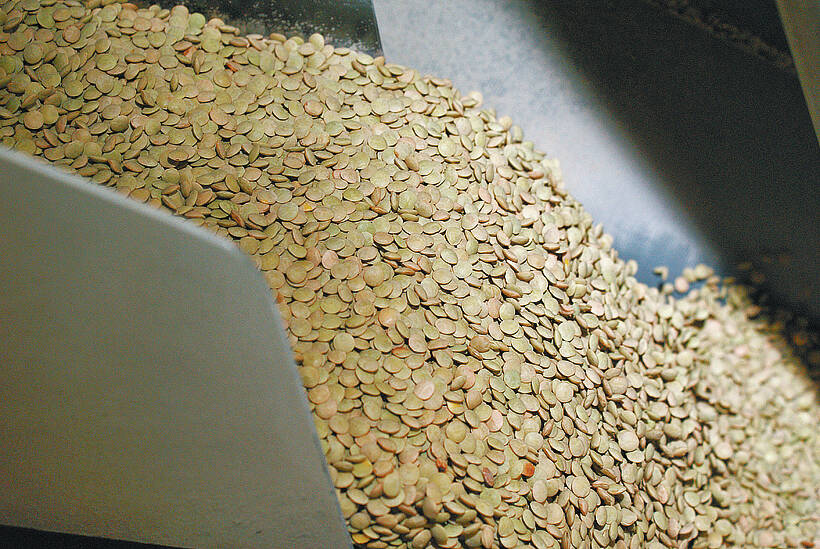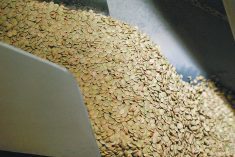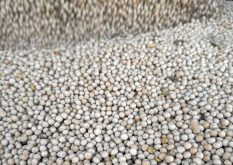Think about banana warning
Last week, bananas probably had the most political interest in Washington since president-in-the-making Ronald Reagan cavorted on the silver screen with monkey pal Bonzo.
This time it was bananas and trade. At stake was the World Trade Organization’s reputation as policeman of the globe’s trade beat.
The starting point in the dispute was the European Union’s policy of giving preference to its former colonies when it comes to importing fruit.
The United States, which does not export bananas, and four Latin American countries that do, challenged the EU and won a ruling from the WTO that the banana policy ran counter to world trade rules.
Read Also

Green lentil market oversupplied
Farmers in Western Canada can expect price pressure on their new crop of green lentils, as the available supplies among the world’s major lentil-growing nations increase significantly.
Europe made some changes to its regulations, but it wasn’t enough to satisfy the U.S. which last November identified $520 million (U.S.) in sanctions covering such goods as bed linen and pork it would impose on March 3 if it didn’t get satisfaction.
Europe said that was pre-empting a WTO panel looking at the EU’s new import law and the U.S. had no right to impose trade sanctions before the panel reports in April.
This led to weeks of procedural wrangling at the WTO. The body seemed paralyzed and there were fears about its ability to work in the future.
The Americans are probably justified in their frustrations over the EU’s reluctance to adequately deal with this trade problem. More than one WTO panel has ruled the EU is in the wrong.
But it is also galling to see the U.S. ready to use sanctions before the WTO process had played out.
Use as example
Banana trade might seem something that does not concern prairie farmers. But precedents set in this case could have repercussions in disputes closer to home.
We need not be reminded that the Americans often think Canada engages in unfair trading. Arguments between Canada and the U.S. over grain and livestock trade have so far been settled bilaterally, but eventually something will wind up before the WTO.
When we are defending ourselves against these complaints, we want to be assured proper procedure is followed. Bullying tactics should not be permitted.
And when the process runs its course and a decision is made, members of the WTO must implement the rulings quickly.
Otherwise, trade will be at the mercy of politicians, who want to play hero to the voting folks back home.














